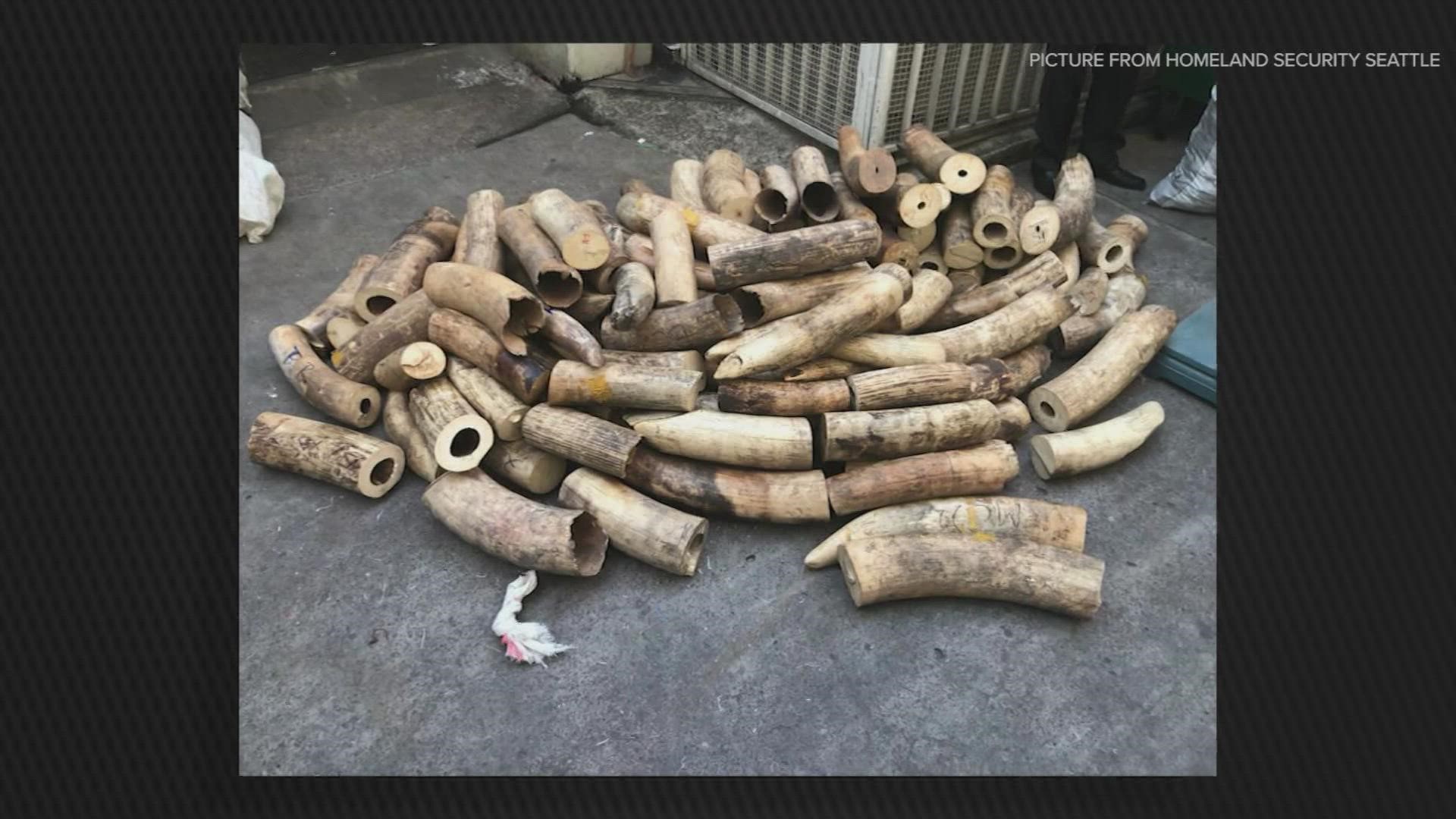SEATTLE — An estimated $3.5 million worth of ivory, rhino horn, and pangolin scales was seized in the Democratic Republic of the Congo after a months-long investigation involving Homeland Security Investigation's Seattle bureau and the Seattle Police Department.
The U.S Department of Justice said Herdade Lokua, 23, and Jospin Mujangi, 31, of Kinshasa, Democratic Republic of Congo (DRC), were arrested on Nov. 3 in Edmonds. The two were indicted by a federal grand jury for conspiracy, money laundering, smuggling and Lacey Act violations for trafficking elephant ivory and white rhinoceros horn from DRC to Seattle.
The department said the two allegedly worked with a middleman to smuggle four packages into the United States. In order to conceal tusks and horn, they were cut into smaller pieces and painted black.
"They discussed sending larger shipments of ivory, rhinoceros horn and pangolin scales by ocean freight containers and described how they could conceal them and launder the payments. On Nov. 2, they arrived in Washington State to negotiate the details of such a deal and were arrested in Edmonds," said the Department of Justice.
The investigation and arrest were made possible because of research done by Sam Wasser, a professor at the University of Washington. Wasser is the Co-Executive Director of the Center for Environmental Forensic Science. The center, formerly known as the Center for Conservation Biology, changed its name in October.
Wasser's research recovers DNA from pieces of ivory, rhinoceros horn and pangolin scales that have been seized. The DNA has allowed him to create a mapped database that tracks where animals are being poached and where their husks are being trafficked. In 2018, his work helped identify the three largest ivory smuggling cartels in Africa.
"Since 2005, our lab has really been the only one in the world analyzing large ivory seizures for DNA," explained Wasser.
Wasser said the recent arrest in Washington was launched because of information he and Homeland Security learned while investigating a seizure in Southwest Africa.
"They need to be investigated because that will lead you to the big transnational criminal organizations. That's the choke point here that is moving dozens of these shipments," said Wasser.
The market for items like ivory and pangolin scales is small in the United States, but it's a multi-billion dollar industry around the globe. The Justice Department said the United States, DCR and approximately 181 other countries are signatories to the Convention on International Trade in Endangered Species of Wild Fauna and Flora (CITES). CITES is an international treaty restricting the trade of species that may be threatened with extinction.
Wasser said there's been work to reduce the demand for ivory, horns and pangolin scales, but the items become more valuable as the animals' population shrinks.
"These big buyers are buying large quantities of ivory hoping that the elephants are eventually going to go extinct and it will be legal to sell their ivory and that it will be like gold," said Wasser.
If convicted, the two arrested in Edmonds could face 25 years in prison. Wasser thinks this arrest brings an opportunity to further investigate the illegal market.
"It's about time people started taking this seriously," said Wasser. "These are bad guys. They are not only moving ivory, they're moving narcotics, pangolins, timber. It's way more serious than people appreciate and way worse than simply killing a wonderful animal."

